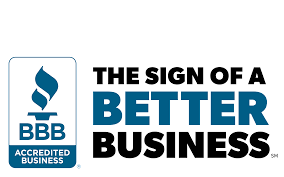Every homeowners association requires a set of rules to serve as a guide for their board elections. But, coming up with these exact HOA board election rules can come as a challenge.
In this article:
Creating Your Own HOA Board Election Rules
The law requires homeowners associations to have and follow a set of election rules. You will typically find general rules within your governing documents, specifically the community bylaws. But, you also need more specific HOA board election rules to serve as a guide for your association. These rules are then considered part of your operating rules.
A lack of election rules could put your association at risk of potential liability. Additionally, failure to follow these rules can result in the overturning of your actions as an HOA board.
It is important to know that there is no standard set of rules for every association. These rules can vary, and each association requires its own collection of HOA board election rules. When drafting your rules, make sure to check your state laws and governing documents to ensure no conflict arises. It is best to have your HOA attorney oversee the creation or amendment of these rules.
Furthermore, since election rules are deemed part of your operating rules, the board typically does not need approval from the membership to create or amend them. Still, the board is bound by certain requirements laid out in state laws and the governing documents.
For instance, if you need to change the rules, you must notify homeowners of the proposed change ahead of time. The notice requirement will vary from association to association. In California, for example, HOA boards must provide 28 days’ notice of a rule change prior to making it.
What to Include in Your HOA Board Election Rules
No two associations are the same. The rules of one association may vastly differ from another’s. Yet, there are some general rules for the HOA election process that all associations will benefit from. If you need help creating or amending your HOA voting rules, here are the points you should consider adopting:
Candidate Qualifications
Your HOA board election rules should establish candidate qualifications. One of the most obvious and mandatory qualifications, of course, is that the candidate must be a member of the association at the time of their nomination. Some associations even go as far as requiring candidates to have been a resident for at least a year. There are also others that disqualify candidates if they have any unpaid dues.
Other reasonable qualifications to become a director include but are not limited to:
- No current violations of the governing documents
- Not involved in legal issues with the HOA
- Not related to any existing board member
- No past felony convictions
Nomination Procedures
 The election rules must also indicate the candidate nomination procedures. These procedures can include:
The election rules must also indicate the candidate nomination procedures. These procedures can include:
- Floor Nominations. Though generally not required by law, your governing documents may allow floor nominations. These take place during the meeting after a quorum has been established. Once the president opens the floor for candidate nominations, members in good standing can nominate other members and no second is necessary.
- Write-In Candidates. Depending on state laws and your governing documents, you may allow write-in candidates. California, for instance, allows associations to permit write-ins unless their governing documents say otherwise.
- Self-Nominations. Associations generally can’t prohibit members from nominating themselves as candidates. Though, they must still meet the candidate qualifications.
Equal Access to Association Media
Campaigning is often difficult without the media resources of the association. As such, you should consider providing candidates access to association media during HOA elections. If you grant access to one candidate, though, you must grant access to all candidates for fairness. Association media can include HOA websites, newsletters, and the like.
Should candidates use association media, you may not edit or remove any content from their campaign materials. But, you may include a disclaimer stating that the association is not responsible for the content and that responsibility rests upon the candidate alone.
Equal Access to Common Areas
Candidates may also need to use common areas and meeting spaces within the association for campaigning purposes. In that case, you must include a rule that allows all candidates equal access to these areas and spaces. Your HOA must not charge the candidates to use these spaces as well.
Voting Qualifications
As part of your HOA or condo voting rules, you must indicate voting qualifications. Explain the voting power of each association member as well as the validity of their vote. You must also describe the effect of proxies if your HOA uses them. Other than that, your HOA board election rules should clearly state the period for voting. This includes the start and end dates as well as the opening and closing times of the polls.
Election Inspectors
Not all state laws may require election inspectors, but some do. In the case of California, associations must have an inspector of the elections when using secret ballots. The HOA election rules must define how election inspectors are chosen. The board can appoint the inspector, have members elect the inspector, or adopt other means of selecting the inspector.
The inspector/s of the election must then have the ability to appoint additional persons to count the votes and authenticate signatures. But, to do so, the inspector/s must be an independent third party.
Voter List and Candidate List Accuracy
Your association’s board election rules must mandate the retention of a voter list and a candidate registration list. The HOA must then allow members to check their individual information for accuracy prior to the distribution of the ballots. The exact period will depend on state laws and the association’s governing documents. For instance, in California, the HOA must allow members to verify the accuracy of their information at least 30 days prior and report any discrepancies within 2 business days.
The voter list must include the following details:
- Name
- Voting power
- Separate interest’s physical address
- Parcel number
- Mailing address for the ballot
Ballot and Rule Delivery
Associations must not deny any member of a ballot. If they own a separate interest in the HOA, then you must allow them a ballot and count their vote (provided they submitted the ballot on or before the deadline). The same goes for a person with a general power of attorney for a member.
Download your free editable voting ballot here.
Your election rules should also require the election inspector to deliver the ballots as well as a copy of the HOA board election rules prior to the election (at least 30 days in California). Ideally, the delivery method used shall be individual delivery accomplished via postal mail.
Can an HOA Endorse a Candidate?
 During the election period, it may become clear to you that a particular candidate is best suited for the job. But, you must never endorse a specific candidate for a position on the board.
During the election period, it may become clear to you that a particular candidate is best suited for the job. But, you must never endorse a specific candidate for a position on the board.
To ensure a fair election process, you must remain a neutral HOA board. That means exhibiting no personal bias or favoritism, even if it is glaringly obvious to you that one candidate stands out from the rest. You must allow homeowners to form their own opinions and simply trust in their good judgment.
Similarly, you should never speak ill of any candidate. Keep your thoughts to yourself even when asked by a member. But, that does not mean you can’t respectfully correct a candidate if they provide false information. Just remember not to criticize them or go after their character.
These points don’t just apply offline, though. Never badmouth or endorse a candidate on your social media pages or through other online communication channels. If a member posts on their Facebook page that they are voting for a particular candidate, refrain from liking or commenting on the post, too. That can be misconstrued as an endorsement.
HOA Boards Need Help, Too
HOA board election rules are essential if you want to hold fair and smooth elections. These rules tell you what you can and can’t do come election time, allowing for a standardized and consistent procedure every time. Adopting and enforcing these rules, though, can be difficult without professional help.







